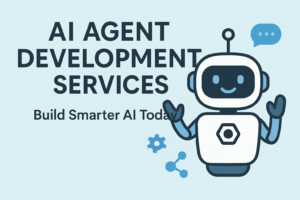AI Regulatory Trends Startup Fundraising Investment Strategy
As artificial intelligence changes industries, a big question is: How will new regulations affect startup fundraising and investment strategies?
The rules around artificial intelligence are changing fast. This is changing how startups get funding and how investors look at investments.
It’s key for startups and investors to keep up with these changes. This way, they can stay ahead in the tech world.
Key Takeaways
- Evolving AI regulations will significantly impact startup fundraising.
- Investors must adapt their strategies to the changing regulatory landscape.
- Staying informed about AI regulatory trends is key for success.
- Startups need to be quick to adapt to new rules.
- Being proactive about AI regulations can give you an edge.
The Evolving Landscape of AI Regulations
The world of AI regulations is changing fast. This change is affecting emerging startup funding trends and investment strategy for AI startups. Governments and regulatory bodies are working hard to keep up with AI’s challenges. They are creating new rules and policies, which impact how startups work and get funding.

Recent Global Regulatory Developments
Many countries are setting up rules for AI. For example, the European Union is proposing the AI Act. This aims to set a global AI regulation standard. Canada and Japan have also introduced guidelines for ethical AI development and use.
These global moves are key for startups. They help startups understand and follow AI regulations. Following these rules is not just legal; it also helps startups gain trust from customers and investors.
Key US Federal Initiatives and Policies
In the US, federal agencies are focusing on AI policies. The National Institute of Standards and Technology (NIST) has created an AI standards framework. The Federal Trade Commission (FTC) has also given guidelines on using AI responsibly. There are even proposals for laws that could change how AI startups work, focusing on data privacy and algorithmic transparency.
For AI startups, it’s essential to know about AI regulations and adjust their investment strategy as needed. They should stay updated on regulatory changes and look for new opportunities.
How AI Regulatory Trends Are Reshaping Startup Fundraising
AI regulatory trends are changing how startups raise money. The focus on AI is making fundraising harder. Startups must deal with both making new products and following rules.
Increased Due Diligence Requirements
The rules around AI are getting stricter. This means more checks for startups looking for funding. Investors are looking closely at both the money-making chances and if the startups follow the rules.
Startups need to be open about how they use AI. They must also show they’re ready for any rules that come up. Those who understand and follow the rules well are more likely to get funding.

Shifting Investor Priorities in Light of Regulations
Investors are now focusing more on regulatory compliance for AI startups. They see not following rules as a big risk to money and reputation.
| Investor Priority | Pre-Regulatory Era | Post-Regulatory Era |
|---|---|---|
| Regulatory Compliance | Low | High |
| Product Innovation | High | High |
| Market Potential | High | High |
| Risk Management | Medium | High |
The table shows how investors’ priorities have changed. Now, following rules is key. Startups that show they’re good at following rules will get more money.
By knowing these changes, AI startups can improve their fundraising. They can get the money they need to grow.
The Current State of AI Startup Funding in 2023
The AI startup funding scene in 2023 is changing fast. It’s shaped by where money goes and where startups are based. Knowing these trends helps both startups and investors.

Investment Volume Analysis by Sector
In 2023, AI startups get funding in many areas. Healthcare and finance lead because AI can change these fields a lot.
Healthcare gets money for AI in diagnosis and personalised care. Finance gets it for AI in managing risks and trading. Other areas like automotive and education are growing too, but slower.
Geographical Distribution of AI Investments
Where the money goes shows the United States and China are big players. But Europe and parts of Asia-Pacific are becoming important too.
Why this is so depends on laws, talent, and tech scenes in each place. Knowing this helps AI startups find funding.
Regulatory Compliance as a Competitive Advantage
The AI startup world is changing fast. Now, following rules is seen as a big plus. As AI gets used more in different fields, rules are being made to handle its challenges and risks.

Building Compliance-First AI Products
Starting with rules in mind can make a startup more appealing to investors and users. This means adding rules into the making of AI products. It makes sure the AI is not just new but also follows the rules.
Here are some ways to make AI products with rules first:
- Use strong data rules to keep data safe and private.
- Do regular checks to find and fix rule problems.
- Make AI systems easy to understand and explain to meet rule needs.
Putting rules first can avoid big problems and damage to reputation. It also builds trust with users and investors. This gives a startup an edge in the market.
| Compliance Strategy | Benefits | Implementation Steps |
|---|---|---|
| Data Governance | Ensures data quality and privacy | Establish data governance framework and conduct regular audits |
| Transparency and Explainability | Meets regulatory expectations, builds trust | Implement transparent AI models, document decision-making processes |
Marketing Regulatory Readiness to Investors
Telling investors about a startup’s rule following is key to getting money. Investors want startups with new tech and a clear rule plan.
“Investors are more likely to invest in AI startups that have a clear regulatory compliance strategy in place. It’s not just about avoiding risks; it’s about demonstrating a proactive approach to navigating the complex regulatory landscape.”
To show readiness for rules, AI startups should:
- Make a clear story about their rule-following efforts.
- Share details on how they follow rules, like data safety and AI clarity.
- Show off any rule checks or approvals they’ve gotten.
By focusing on rules as a plus, AI startups can stand out. They attract investors who want success and growth over time.
AI Regulatory Trends Startup Fundraising Investment Strategy: A Complete Guide
AI is changing many industries, and this affects how startups raise money and plan their investments. Startups face a complex world of rules that shape their products, how they raise funds, and their appeal to investors.
Aligning Product Development with Regulatory Expectations
It’s key to match product development with what regulators expect. This means following current rules and being ready for future changes. This way, startups avoid risks and look better to investors.
To align with these expectations, startups should:
- Make regulatory thinking part of their product development
- Keep in touch with regulators to know about upcoming changes
- Have flexible development plans that can adjust to new rules
By doing these things, startups can make products that meet today’s rules and are ready for tomorrow’s. This makes them more appealing to investors.
Demonstrating Regulatory Awareness in Pitch Decks
Showing you know about regulations is also vital when pitching to investors. Startups need to show they understand the rules and have planned their business strategy around them.
Key points to include in pitch decks are:
- A clear summary of the rules that matter and how they affect the business
- Plans for following the rules and managing risks
- Proof of working with regulators and planning ahead
By showing they get regulations and are ready, startups can win over investors. They stand out in a crowded fundraising scene.
In the end, a good strategy combines product development and talking to investors. It’s all about handling the complex link between AI rules, startup funding, and investment plans.
Venture Capital’s Response to AI Regulations
Venture capital is changing how it invests in AI. It’s creating new ways to invest and setting up special funds. As AI rules get clearer, venture capitalists are finding new ways to work in this space.
New Investment Thesis Frameworks
Venture capitalists are updating their investment plans because of AI rules. They’re making new plans that focus on startups that know and follow the rules well.
- Investors want startups with strong compliance plans.
- They’re looking for companies that think about rules when they make AI.
- They’re checking startups’ risk of breaking rules more carefully.
Specialized Funds for Regulation-Compliant AI Startups
Special funds are being made to help AI startups follow the rules. These funds give extra help to startups dealing with complex rules.
What makes these funds special includes:
- They really get AI rules and how they affect startups.
- They focus on startups that make AI with rules in mind.
- They help their companies understand and follow the rules.
Venture capitalists are finding ways to reduce risk and lead in AI innovation. As AI rules keep changing, venture capital will play a big part in AI’s future.
Corporate Investment Strategies in Regulated AI Environments
AI regulations are changing how companies invest worldwide. As rules get stricter, businesses are adjusting their plans to meet AI standards.
Companies face a big choice when investing in AI startups. They can choose strategic partnerships or direct investments. Partnerships let companies work with startups, sharing the costs and risks of following rules.
Strategic Partnerships vs. Direct Investments
Partnerships have many benefits:
- Shared risk in following rules
- Access to new AI tech
- Flexible ways to invest
Direct investments, on the other hand, give companies more control. This can lead to bigger returns. But they also have to handle all the risks of not following rules.
“Understanding the rules and adjusting your plan is key to investing in AI,” says an AI investment expert. “Companies must balance the need for control with the risk of breaking rules.”
Corporate Venture Capital’s Approach to Regulatory Risk
Corporate Venture Capital (CVC) groups are now focusing on managing regulatory risk. They look for AI startups with strong compliance plans. This helps reduce risks and encourages new ideas.
CVCs use their knowledge and resources to help their companies get through the approval process. This ensures their investments are both new and follow the rules.
As AI rules keep changing, companies must adjust their investment plans. By knowing the rules and choosing the right partnerships or direct investments, they can succeed in the AI world.
Regional Variations in AI Regulations and Their Impact on Funding
The world of AI regulations is varied, with each region having its own rules. These rules can either help or hinder AI startups looking for funding. This mix of rules offers both challenges and chances for AI startups to find investors.
As AI grows, knowing about these regional rules is key for startups. Regulatory compliance is now a big deal for investors. It decides if they want to back an AI startup or not.
EU’s AI Act and European Startup Ecosystem
The European Union’s AI Act is changing the AI scene in Europe. It aims to create clear rules for AI, focusing on being open, accountable, and ethical.
“The EU’s AI Act represents a landmark in AI regulation, setting a precedent for other regions to follow.” This shows how the EU’s rules could shape AI laws worldwide.
The EU’s AI Act affects European startups in many ways:
- Startups might spend more on following the rules.
- Compliant startups could look more appealing to investors.
- It could make the EU market fairer for everyone.
Asia-Pacific Regulatory Frameworks and Investment Flows
The Asia-Pacific area has different AI rules, from loose to strict. Countries like China, Japan, and Singapore are setting the pace for AI policies. These policies affect where investors put their money.
Singapore is a top spot for AI innovation, thanks to its balanced rules. Investors are paying attention to places like this when deciding to fund AI startups.
The variety in Asia-Pacific’s rules makes it tricky for AI startups. But it also offers chances to navigate tech industry trends and find AI investment opportunities.
As rules keep changing, startups need to do a deep startup funding landscape analysis. This helps find the best places for AI investment.
Fundraising Techniques for AI Startups in a Regulated Market
The world of AI and rules is changing how tech startups raise money. As rules get more complex, AI startups need to change how they fundraise. They must balance being compliant and attracting investors.
Leveraging Regulatory Expertise in Fundraising Conversations
Startups that know the rules well can stand out when looking for money. Regulatory expertise is key when talking to investors. It shows they can handle legal challenges.
To use regulatory knowledge well, AI startups should:
- Keep up with new rules in their field.
- Make sure their products meet legal standards.
- Share their legal plan with investors clearly.
Alternative Funding Sources for Compliance-Heavy Development Phases
AI startups spend a lot on following rules during some parts of their growth. Looking into alternative funding sources can help. This way, they can keep innovating without breaking the bank.
Some options include:
- Government grants for research and development in regulated areas.
- Partnerships with big companies that offer money and know-how.
- Venture capital firms that focus on regulated industries.
By looking at different ways to fund and showing they follow the rules, AI startups can attract more investors.
Investment Due Diligence in the Age of AI Regulations
The world of AI and rules is changing how we check investments. This is key for startups looking to raise money. As AI grows, investors must look at its value and if it follows new rules.
Regulatory Risk Assessment Frameworks
Investors are using new tools to deal with AI rules. These tools help them see if AI startups follow the rules now and will in the future.
- Assessment of data privacy and security measures
- Evaluation of AI model transparency and explainability
- Review of compliance with industry-specific regulations
- Analysis of possible future rule changes
These tools help investors spot risks in AI startups. This way, they can make smarter choices.
Technical Due Diligence with Compliance Focus
Checking AI tech now means looking at rules too. It’s about making sure AI systems follow the rules.
- Review of AI model development processes
- Assessment of data quality and handling practices
- Evaluation of algorithmic bias and fairness measures
- Examination of deployment and monitoring practices
By mixing rule checks into tech checks, investors get a full view of AI startups. This helps them see if a startup can succeed in the long run.
In short, AI rules are changing how we check investments. By using new tools and focusing on rules, investors can find good AI investments. They can spot chances that fit today’s and tomorrow’s rules.
Case Studies: Successfully Funded AI Startups Navigating Regulations
AI startups that get funded well know how to deal with rules. They understand the complex rules they follow. This helps them get a lot of money.
Healthcare AI Companies and FDA Regulations
Healthcare AI startups face tough rules from the FDA. PathAI is a great example. They use AI for health checks and got a lot of money by following FDA rules.
PathAI’s success comes from talking to regulators early and being proactive. They meet and even go beyond what’s expected. This makes them more appealing to investors.
Financial Services AI Startups and Banking Regulations
AI startups in finance have to follow many banking rules. Feedzai is a company that fights financial fraud with AI. They’ve also gotten a lot of money by following these rules closely.
These stories show how important following rules is for AI startups. By sticking to the rules, they can avoid problems and get investors’ attention.
Future Regulatory Trends and Their Impact on AI Investments
The future of AI investments is closely tied to changing global regulations. Governments and regulatory bodies are working hard to handle AI’s challenges. New trends are forming that will shape the AI industry.
Emerging Global Regulatory Coordination Efforts
One important trend is the push for global regulatory coordination. As AI spreads, countries see the need for unified rules. This helps with cross-border innovation and trade.
This coordination could make it easier for AI companies to operate worldwide. It might lower costs and simplify the process of following different rules.
Sector-Specific Regulatory Developments to Watch
There are also specific regulations for different sectors that will affect AI investments. For example, rules in healthcare and finance will shape AI in these fields.
- Healthcare AI: Expect stricter rules on data privacy and security. There will also be more checks on AI diagnostic tools.
- Financial Services AI: Look for rules on AI in risk management, anti-money laundering, and knowing your customers.
Investors need to keep up with these sector-specific rules. This helps them make smart choices about AI investments.
By knowing these regulatory trends, investors and AI startups can navigate the complex world. They can find chances for growth and innovation.
Building a Regulation-Aware Investment Strategy for AI Startups
Investing in AI startups means knowing the rules of the tech world. As AI grows, new rules are made to keep it safe and right. Investors need to keep up with these changes.
A smart investment plan looks at the risks of AI startups. This helps investors make better choices and avoid big problems.
Portfolio Diversification Across Regulatory Risk Profiles
Spreading investments across different risk levels is key. Look at the rules for AI in areas like healthcare, finance, and transport.
- High-risk areas like healthcare and finance have strict rules.
- Lower-risk fields might be more flexible but need to follow rules too.
- It’s smart to mix investments in both high- and low-risk AI startups.
Long-term vs. Short-term Investment Horizons in Regulated Markets
The rules for AI are changing fast. Investors need to think about both short- and long-term effects of these changes.
Short-term plans focus on following current rules and staying compliant.
Long-term strategies Look ahead to future rules and plan investments for those changes.
By balancing today’s rules with tomorrow’s plans, investors can succeed in the AI world.
Practical Advice for AI Startups Seeking Funding in Today’s Regulatory Environment
AI startups face a tough regulatory landscape when looking for funding. They need a smart plan to win over investors. Compliance is key to attracting investors in today’s world.
Developing a Regulatory Roadmap for Investors
AI startups must create a regulatory roadmap to show they’re ready for investors. This means:
- Reviewing all current and future regulations for their AI tech
- Spotting regulatory risks and planning how to avoid them
- Setting up a flexible compliance framework
With a clear roadmap, AI startups can show they’re serious about following the rules. This makes them more appealing to investors who worry about regulatory risks.
Building a Compliance-Savvy Advisory Board
An advisory board with regulatory know-how is a big help for AI startups. Think about:
- Picking people who really get the regulatory scene in your field
- Making sure they’ve dealt with tough regulations before
- Using their advice to shape your regulatory plan and strategies
A board that knows its stuff can really boost an AI startup’s image with investors. It shows they’re serious about following the rules and managing risks.
In short, AI startups need to focus on regulatory compliance to get funding. By making a regulatory roadmap and getting a wise advisory board, they can do better in today’s rules-based world.
Conclusion: Navigating the Future of AI Investments in a Regulated World
AI is changing many industries, and knowing about AI regulatory trends is key. This knowledge helps startups raise funds and investors make smart choices. The rules around AI are changing fast, affecting how we fund new startups.
Being good at following these rules can really help a startup stand out. By making products that meet regulatory standards and showing they know the rules, startups can do better when asking for money.
Investors also need to change how they think about investing. They should create new ways to invest that take into account the latest AI rules. They should look for startups that follow the rules and use AI in a good way.
By keeping up with AI rules and new funding trends, both startups and investors can make the most of AI. They can find great opportunities while avoiding big risks.
FAQ
What are the key factors driving AI regulatory trends?
How are AI regulations impacting startup fundraising?
What are the most significant regulatory challenges facing AI startups?
How can AI startups demonstrate regulatory awareness to investors?
What role do regulatory compliance and risk management play in investment decisions?
How are venture capitalists adapting their investment strategies to AI regulations?
What are the implications of regional variations in AI regulations for startup funding?
How can AI startups leverage regulatory expertise in fundraising conversations?
What are the key considerations for investors when evaluating AI startups in a regulated market?
How can AI startups build a compliance-savvy advisory board?
Share this content:














Post Comment